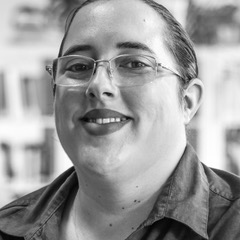DPhil in Experimental Psychology, University of Oxford
| Statistical Analyst | |
|---|---|
| University of Oxford | |
Year entered into a non-academic position: 2016
Job highlight: I find it immensely rewarding that I have the opportunity to find high-impact solutions that can benefit someone’s life, especially someone from a disadvantaged background.
My research training set me up to… feel comfortable when facing the unknown. As a researcher I often encountered problems with no obvious solutions. Dealing with these problems enabled me to think logically, find information, and create a solution, if needed.
What’s your background?
I studied psychology all through my undergraduate and postgraduate degrees. I love it and think that psychology can give us an insight into many challenges that we face as a society today.
Why did you move away from academia?
The main reason was that I wanted to work in a sector where I could make a positive difference and help solve practical problems. I enjoyed the intellectual stimulation of research tremendously but found the pace very slow. There were some other issues as well, such as the uncertainty in the job market for academics, bureaucracy, and the stress of writing grant applications.
How did you prepare for the work involved in your job?
I did a few internships during my DPhil to get an idea about the work and culture in other sectors. I finally chose a sector and role that I knew would be a good fit and applied for this job after seeing it advertised.
Can you describe a typical week in your job?
I have several projects running at the same time, which usually involve a combination of analyzing data, reading papers, writing reports, and discussing strategies and implementing them, which is quite similar to my usual week as a DPhil researcher.
What’s the workplace culture like?
It is a very warm and friendly atmosphere. I enjoy the latitude that I have to choose projects and priortise tasks. My colleagues are driven and passionate about helping potential applicants, which I find very inspiring.
For me, the most important skill that I learned during my DPhil was to be comfortable with the unknown.
How did your PhD prepare you for your current job? For example, what were the transferable skills that you developed during your PhD that are most relevant to your current job?
For me, the most important skill that I learned during my DPhil was to be comfortable with the unknown and have the confidence that I could find answers/solutions when I encountered a problem. A related skill was to become more persistent in dealing with setbacks.
What are your favourite parts of your job?
I love that I have the opportunity to make a significant difference in the lives of applicants.
What are your reflections on your career path?
I’m very happy with the way my career has developed so far. I absolutely enjoyed doing my DPhil – I don’t think I will ever have another phase in my life when I can devote most of my time to satisfy my intellectual curiosity! However, I’m happy I have moved on into industry. I think that the move has helped me grow as a person by developing better communication skills and becoming a practical problem-solver. I feel challenged with my current level of responsibilities and am very positive about my future prospects.
Do you have any advice for current graduate students and postdocs considering a career outside of academia?
The world is full of opportunities – don’t be afraid to find something that is fulfilling. People are usually happy to have a chat – find someone who works in a target sector, do your research, and ask insightful questions to gain an understanding about the kind of work they do and the challenges that they face. Organisations are also happy to have interns – email them to find an opportunity for you, even if they don’t advertise for positions.
Can you recommend any relevant resources, organisations or events that might help somebody new to the sector find out more about it?
Reading forums online was a good starting point for me.





